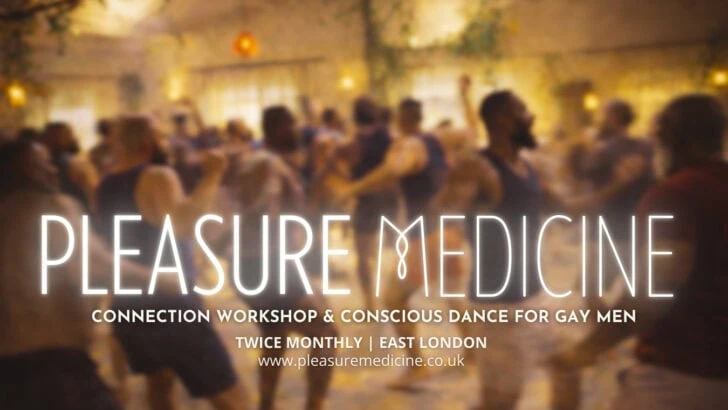Lord Norman Fowler was Health Minister when HIV/AIDS first began to appear in the UK. This year he publishes his book of global research into the subject, ‘AIDS: Don’t Die of Prejudice’. He speaks to QX about his controversial ‘tombstone’ publicity campaign, what he discovered in the writing of his book, and the contemporary HIV situation in London right now.
 ‘In 1985/86/87 we had this terrible prospect in this country of young men who had HIV, which developed into AIDS, there weren’t any drugs to treat people with, and so the vast majority died,’ says Lord Norman Fowler, seated in a high-ceilinged, red brocaded antechamber of the House of Lords. ‘There was nothing we could do about it. But there was something you could do in trying to prevent other people becoming infected. That’s why in 1986/87 we ran a major publicity campaign, which was intended to bring people up short, to shock and get their attention.
‘In 1985/86/87 we had this terrible prospect in this country of young men who had HIV, which developed into AIDS, there weren’t any drugs to treat people with, and so the vast majority died,’ says Lord Norman Fowler, seated in a high-ceilinged, red brocaded antechamber of the House of Lords. ‘There was nothing we could do about it. But there was something you could do in trying to prevent other people becoming infected. That’s why in 1986/87 we ran a major publicity campaign, which was intended to bring people up short, to shock and get their attention.
‘We did use tombstones and icebergs and things of that kind, and the result of it was controversial. Margaret Thatcher said we shouldn’t be so explicit about it, we should just gently get round the issue. And our view on this was that if you were going to do it you needed to do it properly, the public weren’t fools. The result was that HIV came down, and that sexual disease generally came down and at the same time we introduced clean needles as well, and then methadone, and that has been a permanent advantage ever since.’
Since leaving government Lord Fowler has retained a keen interest in the issue of HIV/AIDS. When attending the International AIDS Conference 2012 in Washington, it occurred to him that there was no real overall description of what was happening on a global scale. Not having the time or resources to visit every country in the world, he visited nine major cities to draw out what the position was in each one, as well as possible solutions and ways forward: Capetown, Entebbe, Nairobi, Moscow, Kiev, New Dehli, Sydney and London. The result was his recently released book AIDS: Don’t Die of Prejudice.
Fowler is unfailingly polite and genteel to talk to in person, with an underlying layer of sharp wit and determination. The latter no doubt helped him in pushing through his health campaign against a Conservative government, and some sections of the general public, that might have at first been apathetic to what was seen as a ‘gay disease’. He has sat on the board of the Terrence Higgins Trust, and is currently on the board of the International AIDS Vaccine Initiative (IAVI) in New York. ‘Quite a number of people are slightly intrigued that a past Chairman of the Conservative party should be campaigning for this,’ he says. ‘But my answer to that is: it was slightly accidental that I got into it because I was Health Minister at the time, but I’m not going to stop doing it if I see that the problem is still there… 35 million dead and 35 million infected.’

‘The thing that has shocked me most really is that I hadn’t realised quite how deep the prejudice was. You go to Uganda, Nigeria, India, a whole range of countries, and there’s deep prejudice. In Russia, deep prejudice. I mean the situation in Russia has been made worse with the legislation toughened up, not weakened. If you’re in Africa and you happen to be living, as you quite likely are, in a country where homosexuality is illegal, are you going to come forward for a test? Many people don’t. You can’t get treatment unless you get tested. I don’t see how we’re ever going to win this battle if we have this degree of prejudice.’
“I don’t see how we’re ever going to win this battle if we have this degree of prejudice”
As QX reported in our recent feature on homophobia in the Commonwealth, it doesn’t look likely that this prejudice is going to change any time soon. I ask Fowler if there are any ways forward with helping those with HIV in these countries and he’s immediately forthright in his response. ‘A vaccine would cut through all the prejudice and discrimination. If there’s a vaccine which everyone has irrespective then you don’t do away with the prejudice but you at least go round it as far as HIV is concerned.’ How close are we to a vaccine? ‘No one knows. They need to put money into it, and that will speed up the process greatly.’
Here in the UK, where treatment is widespread and HIV is currently a manageable condition for most people living with the virus, perhaps it is unsurprising that Fowler has experienced a perceived invisibility from friends or colleagues not involved in the sector. He tells an anecdote where a characteristic response to his saying he was writing this book would be ‘is that still a problem?’ This reminds me of when I spoke to Matthew Hodson, Chief Executive of GMFA, where he commented about young gay men essentially not regarding HIV as a problem anymore. Fowler quotes the figures on current HIV infection in the UK: ‘100,000 people with HIV and 25%, perhaps a little less, are undiagnosed and that comes as a big surprise to most people.’

It is clear that Fowler is passionate about and believes fervently in his cause, which is ultimately to ensure healthier lives for a global population currently afflicted by the virus. But as we near the end of our interview together, I can’t let a former member of Margaret Thatcher’s cabinet go without asking about him about Section 28 – the law implemented in 1988 that forbade the promotion of homosexuality in schools. He pauses. ‘It was a big mistake. Thank goodness it’s been repealed, and I know people get very upset in retrospect about it and I can understand why. Fine. But I think the issue is about today and the future, not what happened in the past, 20/30 years ago.’
I ask him if he thinks the law and its legacy in the education system, of essentially seeing generations of gay men growing up denying themselves, may have some influence on the current ‘chemsex’ syndemic we are seeing in London, itself leading to rising HIV rates. He looks out across the river, towards Vauxhall. ‘I’d never heard that theory before,’ he states. ‘I rather take the straightforward view on chemsex drugs that the attraction of them is a sexual attraction, whether it has its roots elsewhere I don’t know. I think you’d be a bit pressed frankly to make the connection between one and the other. The other is quite a long time ago now, and chemsex drugs have obviously appeared elsewhere in the world as well, but I mean I don’t know, it’s another area that we need to go into in rather more detail.’
Finally, we finish discussing what is the best way forward for tackling HIV/AIDS on a global scale, in Fowler’s opinion. He mentions breaking down discrimination, increased testing, developing a vaccine and the importance of sex education. But he ends by stressing the strength of public awareness: ‘Above all we’ve got to persuade people, particularly in the West, that the issue hasn’t gone away – 35 million dead already? That’s a vast, vast number, and the trouble is it’s so vast that people don’t really seem to appreciate it. So, it’s a matter of governance to persuade the public and it’s a matter for all the voluntary organisations and the clinicians to persuade the public, and for the politicians and churches to do more than they do at the moment. It’s a big agenda.’
- ‘AIDS: Don’t Die of Prejudice’ by Lord Norman Fowler is out now from Biteback Publishing. £14.99.
- www.bitebackpublishing.com
- Lord Norman Fowler will be signing copies of ‘AIDS: Don’t Die of Prejudice’ on Thursday 28th August from 6-8pm, at Prowler Store, 5-7 Brewer Street, Soho, W1F 0RF.
- Read the full ‘In Conversation With’ interview transcript with Lord Norman here.


















